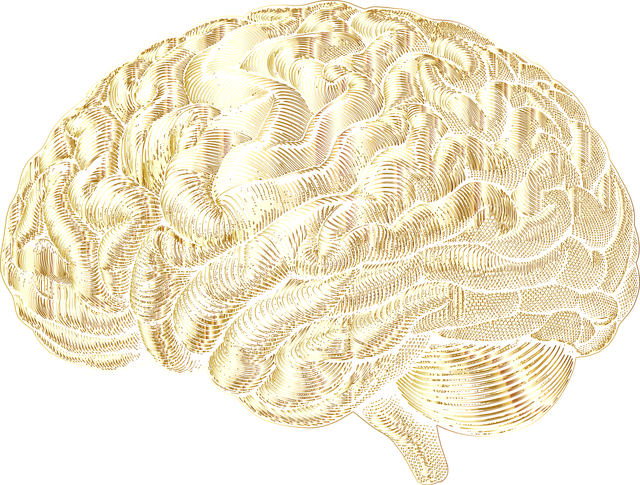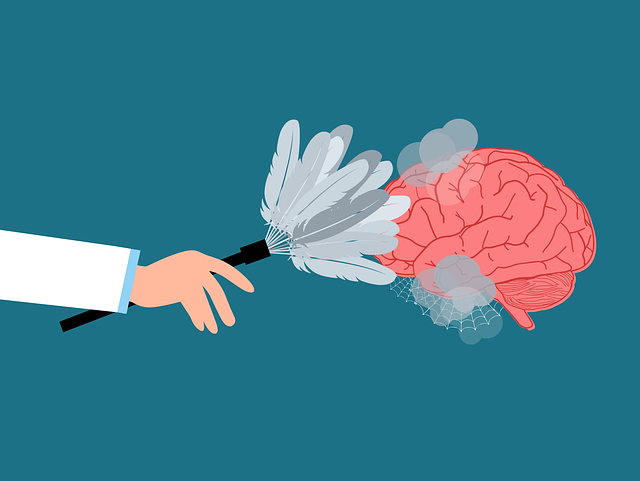Englewood Adjustment Disorder (EAD) is a stress-related mental health condition treated with psychotherapy, medication, and self-care routines through Englewood Adjustment Disorder Therapy (EADT). EADT combines cognitive behavioral techniques (CBT), mindfulness, and holistic strategies to address root causes of stress and anxiety, improve emotional regulation, and enhance overall well-being. CBT targets negative thought patterns and behaviors, while mindfulness practices help individuals detach from stressors and foster resilience. EADT promotes long-term stress management through personalized strategies, self-care, and support networks, leading to lasting positive changes in mental health and quality of life.
Stress management techniques are essential tools for navigating life’s challenges, especially for those dealing with conditions like Englewood Adjustment Disorder (EAD). This article explores effective strategies to combat stress and anxiety. We delve into the symptoms and impact of EAD, highlighting the critical role of therapy in managing this disorder. Additionally, we cover evidence-based methods such as cognitive behavioral techniques, mindfulness practices, and lifestyle changes that, when combined with supportive systems, offer long-term solutions for stress relief.
- Understanding Englewood Adjustment Disorder: Symptoms and Impact
- The Role of Therapy in Managing Stress and Anxiety
- Cognitive Behavioral Techniques for Effective Stress Relief
- Mindfulness and Meditation Practices for Calmness
- Lifestyle Changes and Support Systems for Long-Term Stress Management
Understanding Englewood Adjustment Disorder: Symptoms and Impact

Englewood Adjustment Disorder (EAD) is a mental health condition that arises when an individual struggles to cope with significant life changes or traumatic events. It’s characterized by symptoms such as depression, anxiety, irritability, and difficulty managing daily tasks, which can significantly impact one’s ability to function normally. The disorder often manifests as a response to stressful situations, like major life transitions, loss of a loved one, financial troubles, or chronic illnesses.
Understanding EAD is crucial for effective therapy, which typically involves a combination of psychotherapy and sometimes medication. Engaging in Self-Care Routine Development for Better Mental Health can be a significant part of treatment. Burnout Prevention Strategies for Healthcare Providers are also relevant as professionals often deal with high-stress environments. By learning Emotional Regulation techniques, individuals with EAD can better manage their responses to stressful triggers, leading to improved overall well-being and quality of life.
The Role of Therapy in Managing Stress and Anxiety

Stress and anxiety are prevalent issues that can significantly impact an individual’s overall well-being, often leading to various mental health challenges. This is where therapy plays a pivotal role in providing effective solutions. Engaging in Englewood Adjustment Disorder Therapy (EADT) offers a structured approach to managing these conditions. The process involves exploring the root causes of stress and anxiety, helping individuals develop healthier coping mechanisms and improve their emotional regulation skills.
Through EADT, clients learn valuable techniques to foster positive thinking and enhance mental health awareness. It equips them with tools to navigate stressful situations, encouraging a more balanced perspective. By addressing underlying issues and promoting better emotional understanding, therapy enables people to lead more fulfilling lives, free from the constant burden of stress and anxiety.
Cognitive Behavioral Techniques for Effective Stress Relief

Cognitive Behavioral Techniques (CBT) offer a powerful arsenal for managing stress and its related disorders, such as Englewood Adjustment Disorder. This evidence-based approach focuses on identifying and changing negative thought patterns and behaviors that contribute to excessive stress. By modifying these cognitive processes, individuals can gain better control over their emotional responses, leading to significant improvements in overall well-being.
In CBT, therapists often utilize crisis intervention guidance to help clients navigate stressful situations effectively. This involves teaching skills for emotional intelligence, self-esteem improvement, and enhanced coping strategies. Through structured sessions, individuals learn to challenge distorted thinking, replace negative self-talk with more realistic and positive statements, and develop healthier habits to manage stress. These techniques empower people to confront challenging situations head-on, fostering resilience and promoting a sense of calm amidst life’s storms.
Mindfulness and Meditation Practices for Calmness

Mindfulness and meditation practices have emerged as powerful tools for managing stress, offering a calm haven in today’s bustling world. These ancient techniques, often incorporated into Englewood Adjustment Disorder Therapy, help individuals cultivate inner strength and develop resilience against life’s pressures. By focusing on the present moment and observing thoughts without judgment, mindfulness allows one to detach from stressful triggers, fostering a sense of tranquility.
Englewood’s Community Outreach Program Implementation and Public Awareness Campaigns Development have played a significant role in promoting these practices as accessible stress management tools. Through guided meditations and mindfulness exercises, individuals can learn to quiet their minds, reduce anxiety, and enhance overall well-being. This inner strength development is crucial for navigating life’s challenges and maintaining emotional balance, making it an essential aspect of holistic therapy approaches.
Lifestyle Changes and Support Systems for Long-Term Stress Management

Long-term stress management requires a holistic approach that includes lifestyle changes and a strong support system. At Englewood Adjustment Disorder Therapy, we emphasize the importance of personalized strategies to help individuals navigate their mental health journeys effectively. This involves not just treating symptoms but empowering clients with tools for sustained well-being.
One key aspect is integrating self-care practices into daily routines, such as regular exercise, mindfulness techniques, and healthy sleep habits, which can significantly reduce stress levels. Additionally, building a robust support network, whether through therapy groups, peer connections, or family involvement, fosters a sense of belonging and emotional resilience. For mental health professionals, risk management planning is crucial to prevent burnout, ensuring they maintain their well-being while providing care. These comprehensive approaches aim to create lasting positive changes, ultimately enhancing clients’ ability to manage stress effectively over time.
Englewood Adjustment Disorder (EAD) can significantly impact an individual’s daily life, but with the right stress management techniques, it is possible to gain control and improve overall well-being. Through a combination of therapy, cognitive behavioral techniques, mindfulness practices, and lifestyle adjustments, individuals suffering from EAD can develop effective coping strategies. Engaging in Englewood Adjustment Disorder therapy that incorporates these various methods enables people to navigate their symptoms, enhance resilience, and foster a sense of calm amidst life’s challenges. By adopting evidence-based stress management tools, one can transform their relationship with stress, leading to improved mental health and a higher quality of life.














